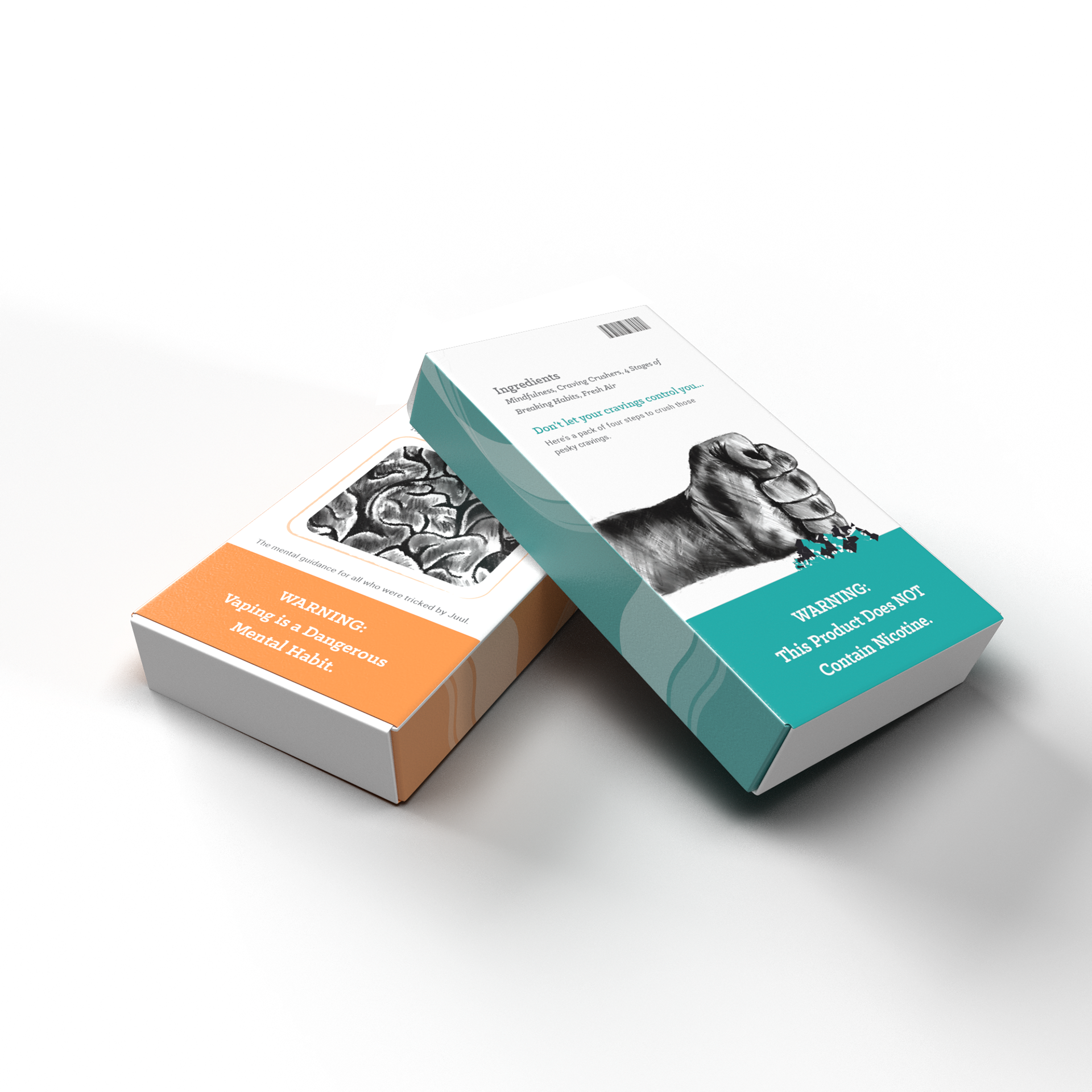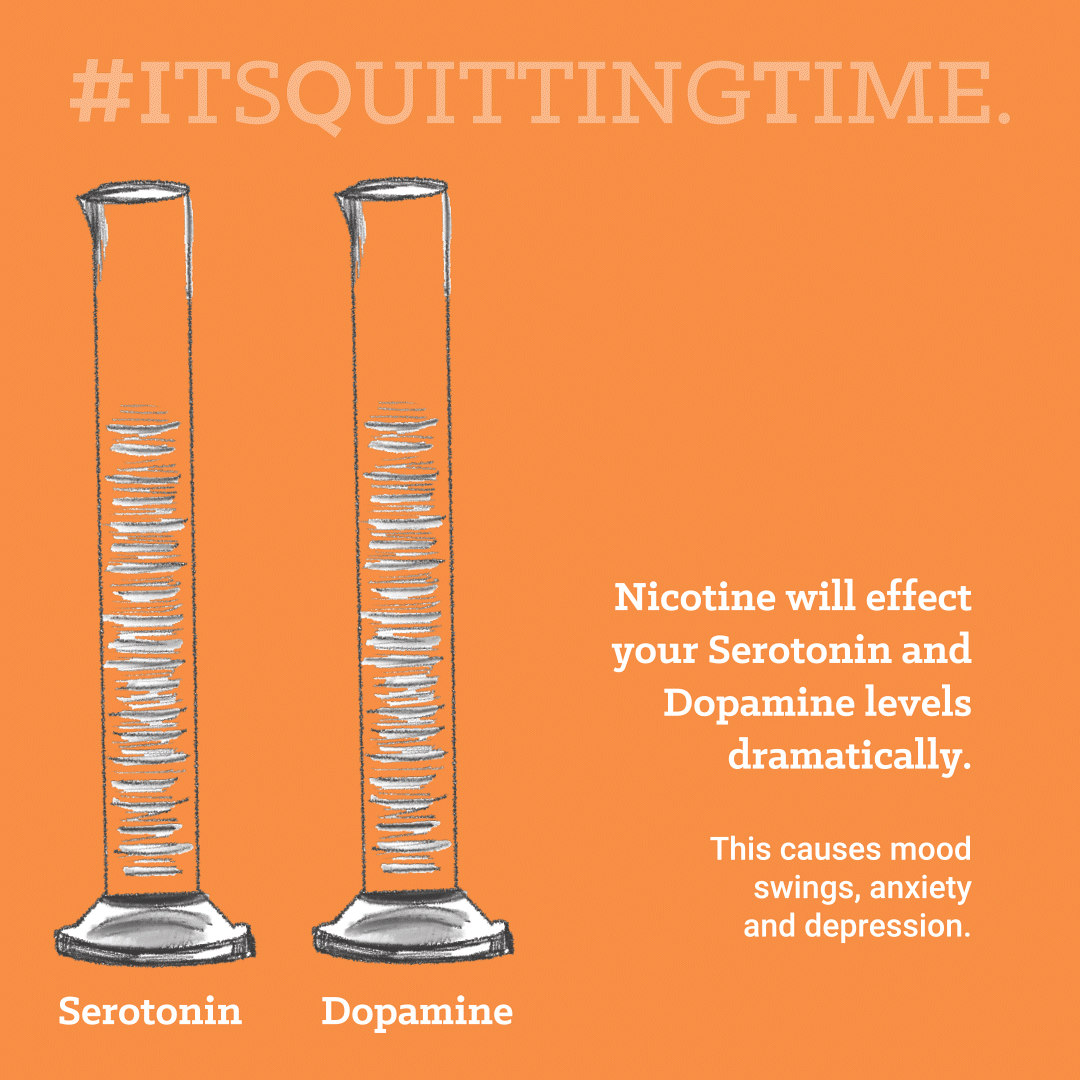
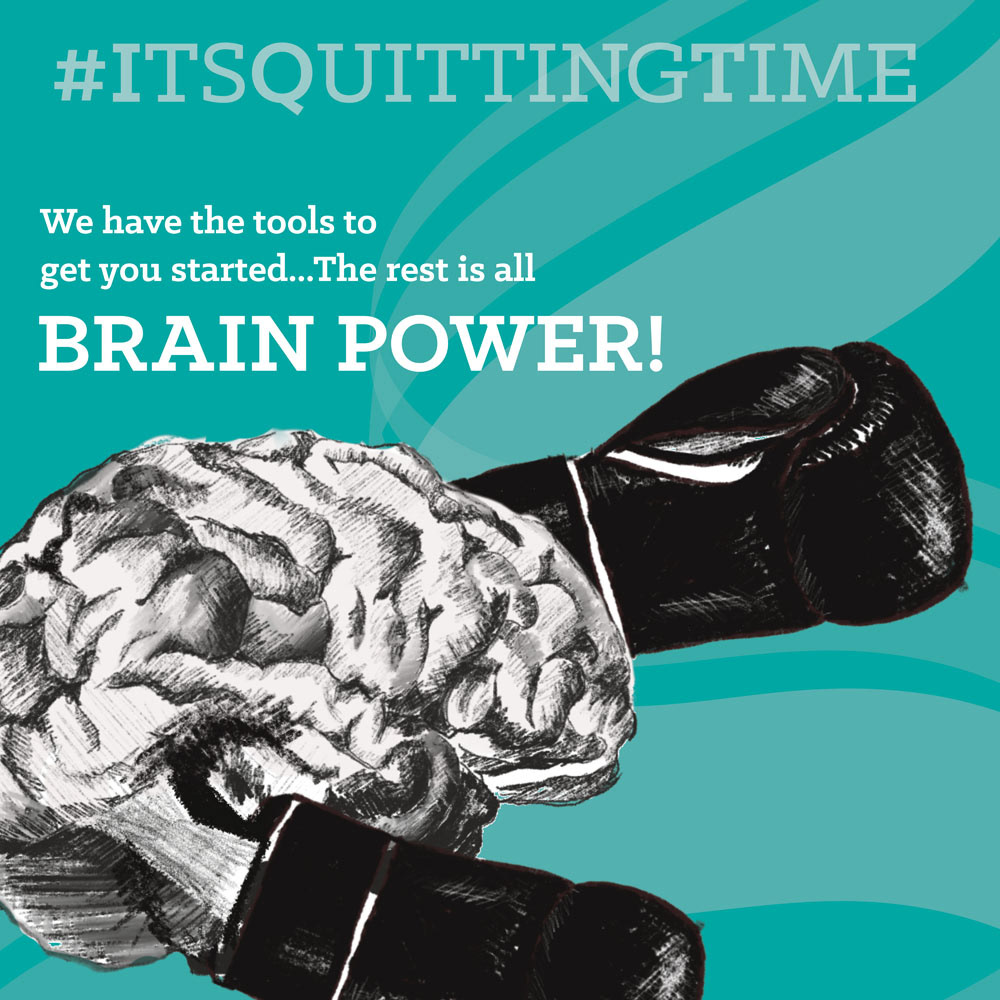
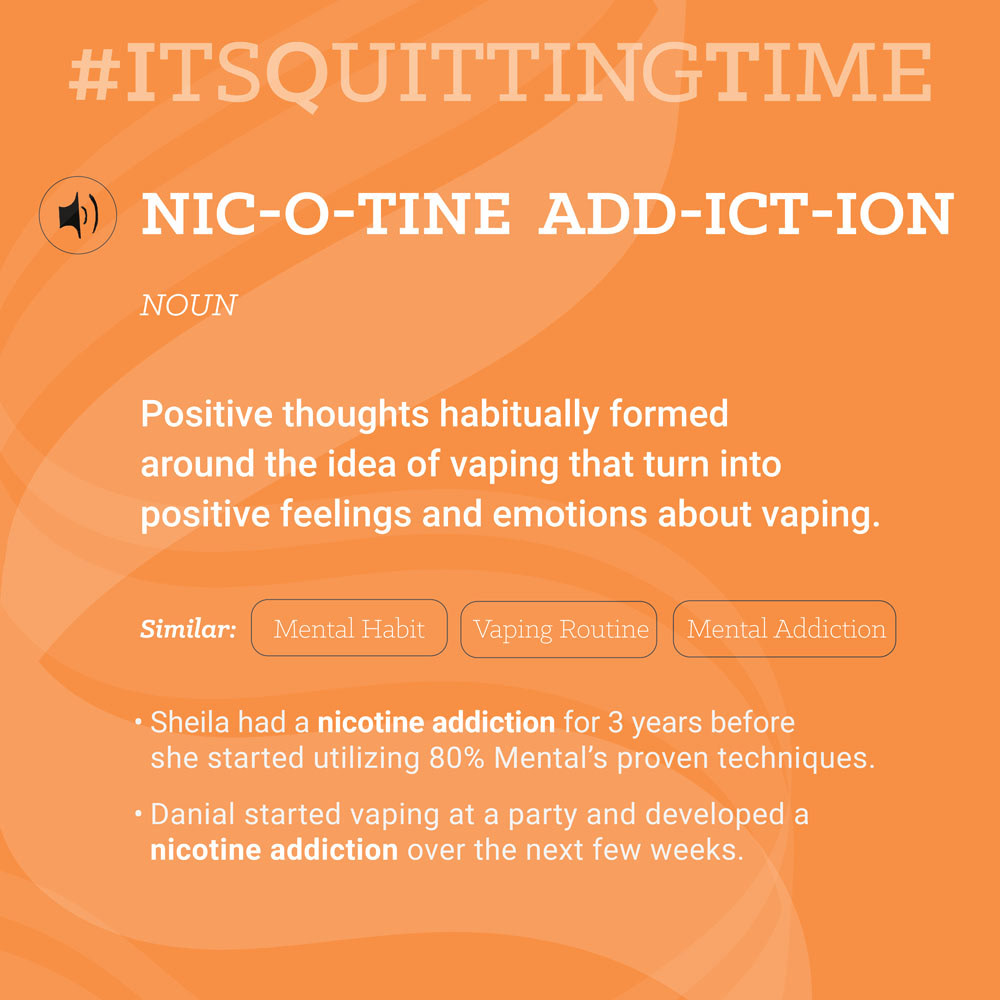
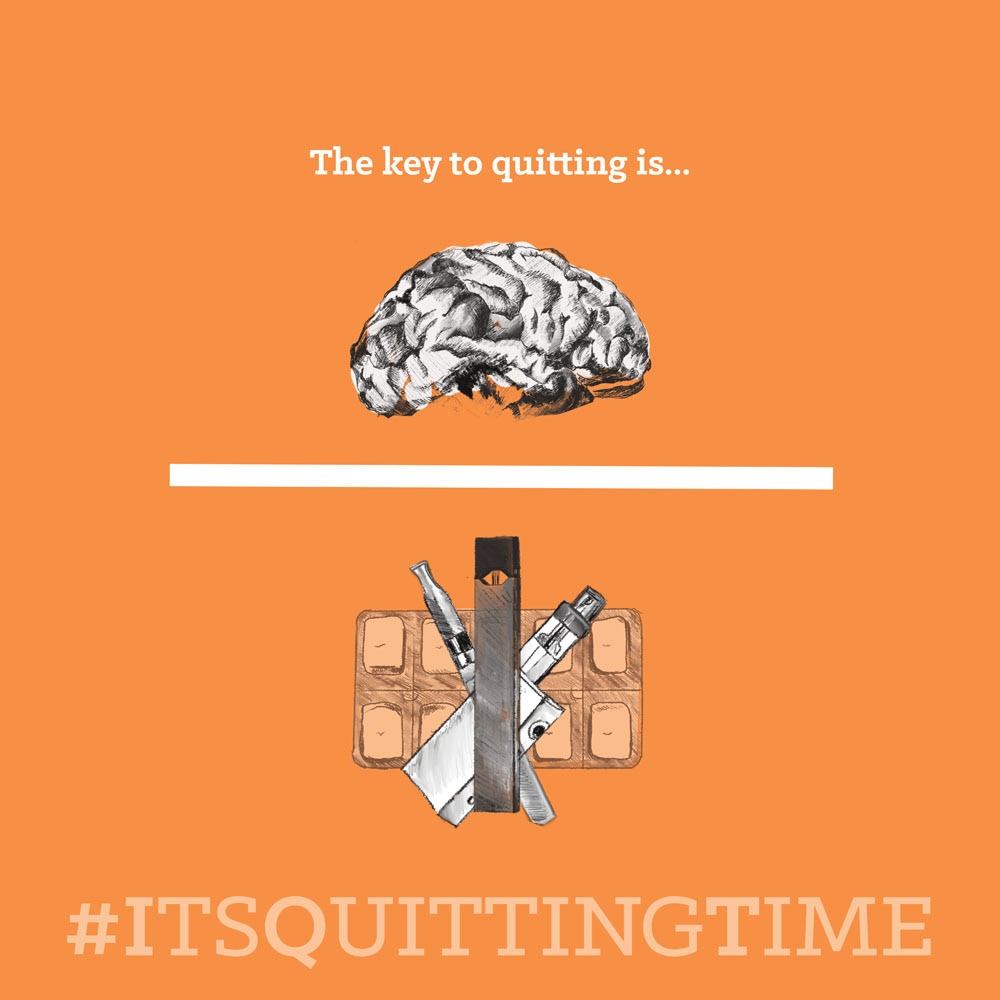

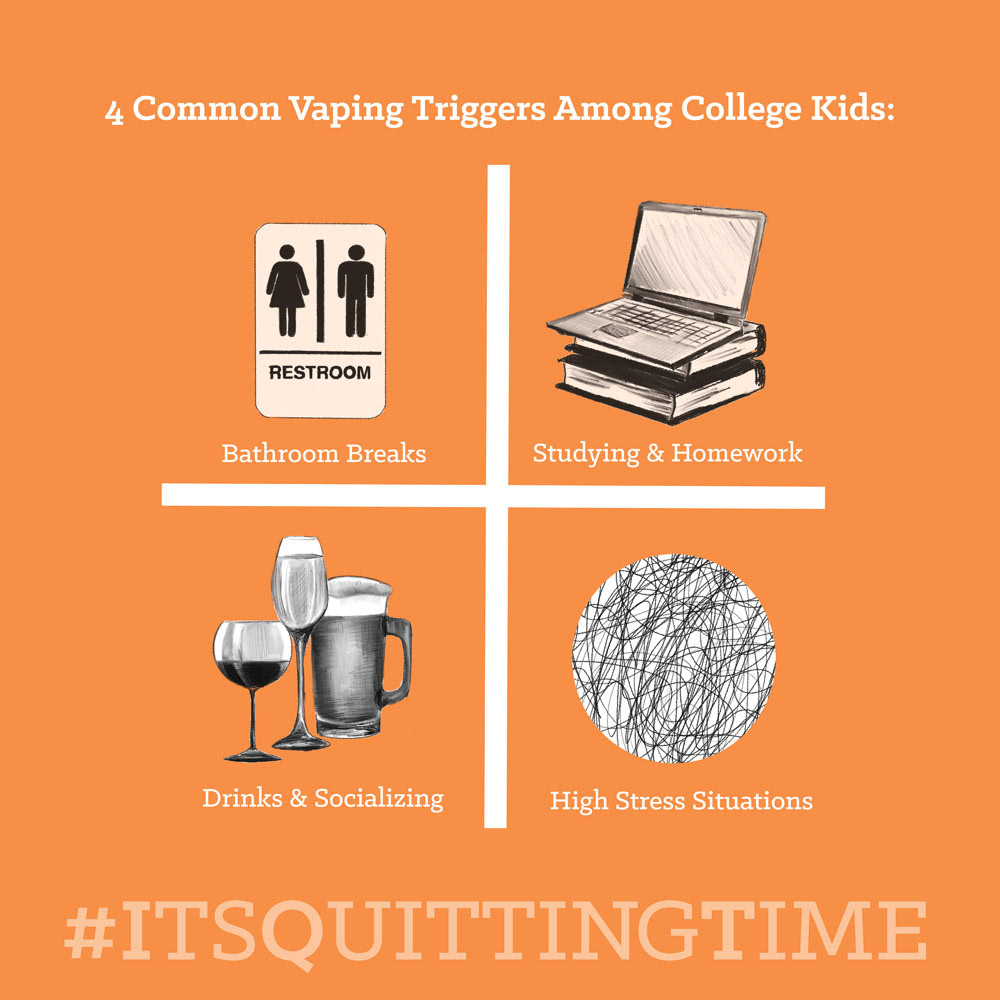
Lexi Rosenbaum
80% Mental
The goal of 80% Mental is to help young adults who are struggling to quit vaping and to explain the importance of tackling the mental side of addiction to succeed in long-term success. There are techniques that I found most effective in my quitting journey that 80% Mental highlights.


Artist/Thesis Statement
In a survey I conducted, I found out that more than half of young adults who vape did not know that nicotine addiction was 80% mental. Most of these young adults also said that they relied on willpower or replacement therapy to try to quit nicotine. None were successful, most likely because these methods don’t usually achieve long-term success. The secret to quitting for good is using your secret weapon: your brain power. The new rave of smoking is now electronic, and it’s called vaping. Over the past 10 to 15 years, vaping has appealed to young adults from as young as middle school to college ages. Although there isn’t sufficient research on the long-term effects of vaping, scientists are already finding toxic metals and chemicals in vape juices that are harmful to your body. Most vape juice products are also not FDA regulated.
The goal of 80% Mental is to provide and spread awareness of mental tools and strategies to help young adults quit vaping for good. Not only does 80% Mental share useful tools, but through campaigning (channeled through Instagram and in print,) we also spread awareness of this idea that quitting and the cravings you get for nicotine are mainly mental, in places where young adults are most inclined to engage. The name comes from the statistic that 80% of nicotine addiction is mental, whereas only 20% is physical. I was suddenly forced to quit nicotine after five years of being addicted due to medical reasons and had no other option but to put my research to the test. I haven’t touched a vape ever since the day I quit.

